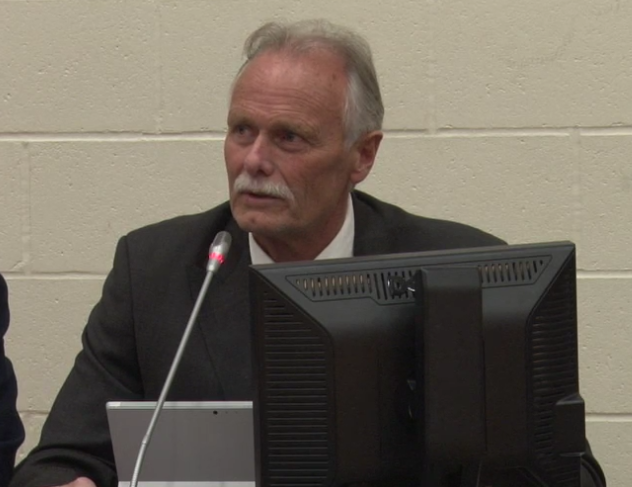NORTH GRENVILLE, Ontario – At a special meeting of the Upper Canada District School Board’s (UCDSB) Board of Trustees, the board and the public in attendance heard administration dissect the final draft of the Pupil Accommodation Review (PAR) report.
Mostly rural schools in Cornwall and SD&G were slated for closure in the original version of the UCDSB’s PAR, with students at those schools faced with being sent out of their communities on long bus rides to and from school.
The UCDSB staff accepted a lot of the feedback from the public that they heard through the Accommodation Review Committee (ARC) process and chose instead to not close Char-Lan D.H.S., Williamstown P.S., Longue Sault P.S., Glengarry D.H.S. or Maxville P.S. anytime in the immediate future.
Other schools and changes still remain in effect however. For instance, Rothwell-Osnabruck (R-O) could still see their grade 7-12 students moved to Tagwi Secondary School, 30 kilometres away from Ingleside where R-O is located.
Jennifer MacIsaac, who served on the local ARC and also represents the Save Rothwell-Osnabruck group is not satisfied with this version of the PAR report.
“I was truly shocked and disappointed when reading the final report to trustees,” MacIsaac said. “Our community had a united solution for both LSPS and R-O Secondary from the beginning. This solution was thoroughly supported by residents, municipal leaders and the business community.”
MacIsaac criticized UCDSB staff for not taking into consideration the feedback her community had presented to the ARC.
“Our solution was quite simple, to bring French Immersion that was taken away back to R-O, and to keep the boundaries the same with LSPS feeding R-O which would result in our South Stormont Schools at 96% and 97% capacity,” she said. “The UCDSB’s issue was no longer funded, excess pupil spaces, we offered a solution to that problem yet our solution was ignored. From what I can see in the new report, the UCDSB is only filling 2,358 of their 10,000 empty spaces. In addition, the report proposes taking part of the R-O northern Elementary boundary away and sending those students to Roxmore which is over capacity and in need of an addition? Why would the board change this boundary?”
MacIsaac explained that how Ingelside would be hurt by removing the high school.
“We already know that the economic impact to our township is greatest if the high school is lost,” she said. “There are viable options for Tagwi also, they have three feeder schools already, all that we’re asking is that get to retain our two feeders and our existing boundary and give us back the French language programming the board took away just a few years ago.”
She also emphasized that sending high school students out of South Stormont did not make financial sense to the school board either.
“This is a matter of dollars and cents and filling of vacant seats, not just an emotional plea for our beloved school,” she explained. “The Ministry recognizes value of community schools and protects them through Enhanced Top-up Funding, School Foundation Grants, and Supported Schools Allocations. Through their funding models, The Ministry is encouraging boards to move to K-12 schools as they are more affordable and efficient to run. Through these grants, schools like R-O are fully-funded. Why are we considering removing viable schools like R-O from thriving and growing communities? “
According to the school board’s own staff report, closing Rothwell-Osnabruck would cost $430, 619 with $160, 000 of that coming from busing costs alone.
The Township of South Stormont received a presentation last month which forecasted a loss of $7.5 million annually for the township if the high school program ends at R-O. South Stormont’s annual budget is only $15 million.
Jeff McMillan emphasized to the public who were present at the special meeting that no final decision would be made that night.
“We’re not here to close any schools tonight” he said. “This is not a part of the job enjoyed by any trustee at this table. No one wanted to be a trustee to close schools, but we have to think of the system as a whole,” he explained.



